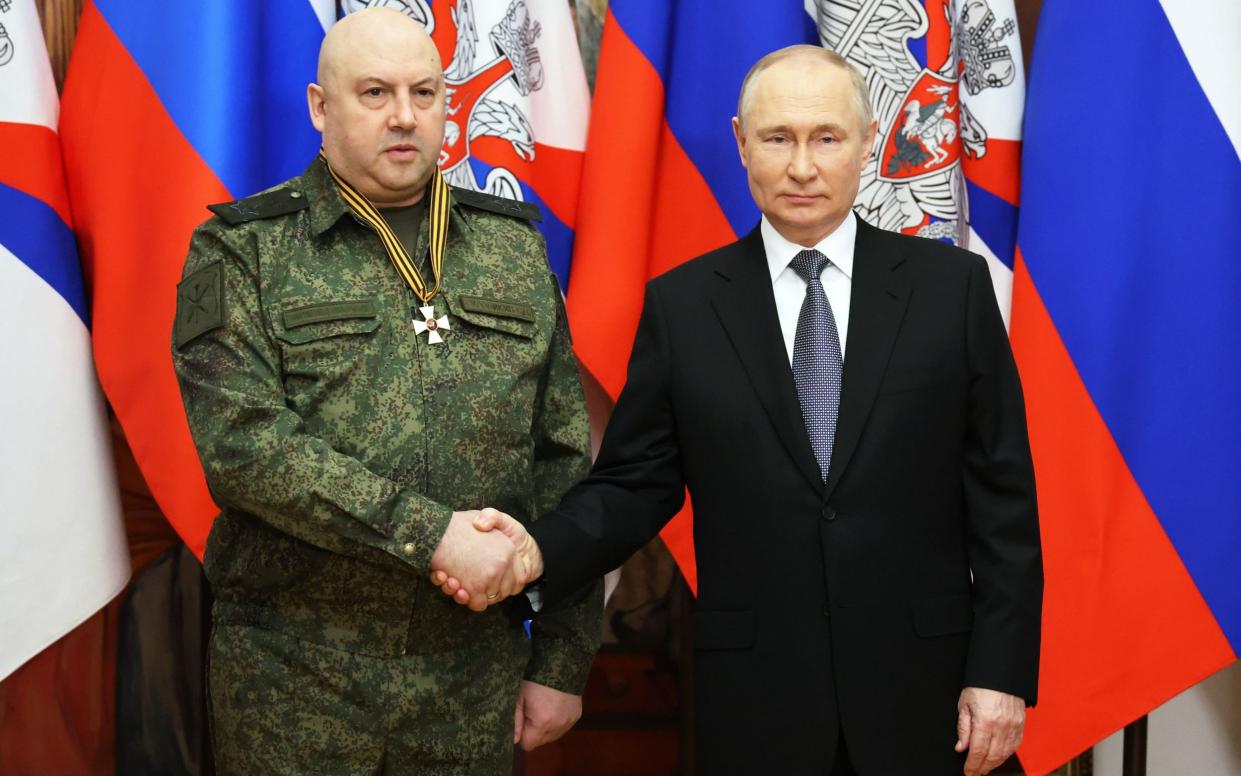Putin’s generals are either incompetent or disloyal. Both will terrify him

- Oops!Something went wrong.Please try again later.
- Oops!Something went wrong.Please try again later.
- Oops!Something went wrong.Please try again later.
Putin just about survived Prigozhin’s “march that wasn’t”; his regime is just about intact. That’s the end of his good news. His reputation and legitimacy have been irreversibly damaged, and he will no longer know who he can trust. While the increasingly reclusive autocrat retreats further into the Kremlin’s dark corridors to lick his wounds, purges of officials suspected of disloyalty could be days away.
After all, it is almost inconceivable that Prigozhin acted in isolation. His objective appears to have been replacing the Russian military leadership, and he would have needed tacit support from elements within the military in order to put new officers in place. It is overwhelmingly likely that he found this.
Consider the role that the Russian military had – and noticeably, didn’t have – during Wagner’s march to Moscow. While Putin has repeatedly acknowledged the steadfastness of the military in suppressing the rebellion, he has also made repeated veiled comments aimed at bringing the perpetrators – plural – to justice. These were not aimed at Prigozhin alone. The mercenary chief, now under close observation by Belarus dictator Alexander Lukashenko’s security forces in Minsk, clearly had some form of support in his aims to replace the Russian military hierarchy.
At the top of the list of possible accomplices is General Sergei “Armageddon” Surovikin, the former commander of Russian forces in Ukraine. Despite incurring Putin’s displeasure after withdrawing Russian troops from Kherson during last autumn’s Ukrainian counter-offensive, Surovikin is seen as highly effective still by the Russian military, serving now as deputy to General Gerasimov, the chief of the armed forces.
There is now intense suspicion that Surovikin knew about Prigozhin’s plans some days before they occurred. There is plausibility to this speculation, as he would have been amongst the top contenders for the Wagner chief’s plans to replace Gerasimov in his originally-conceived negotiations with Putin. Surovikin has now reportedly “vanished”.
The situation in the Kremlin will be unbearable. Putin looks weaker than ever before, and with Russia only eight months away from its next presidential “election”, Moscow elites are now openly discussing the possibility of a post-Putin world. The dictator will be deeply aware of the need to act quickly in order to restore both his bruised ego and his tenuous grasp on power. Meanwhile, those who provided support to Prigozhin will be aware that they have a short window to secure their own futures.
Putin is not without apparent allies. Prigozhin’s march arose out of public feuds with Gerasimov and Defence Minister Sergei Shoigu. Their short-term futures, accordingly, are almost certainly assured. But how much faith will the dictator be willing to place in his subordinates after such a public challenge to his authority? How long can his regime last with such a prominent crack in its facade?
As Putin drags his country from a failed invasion to insurrection, Russian elites will be keenly aware of the greatest failure of state authority. The scars of 1917 are still prominent in the country, and today’s oligarchs have no desire to wake as their predecessors did swinging from lampposts. If their survival can be bought at Putin’s expense, they will not hesitate. He will be aware that his days are potentially numbered. Suspicion and paranoia will reign supreme.
Robert Clark is director of defence and security at Civitas. Prior to this he served in the British military.

